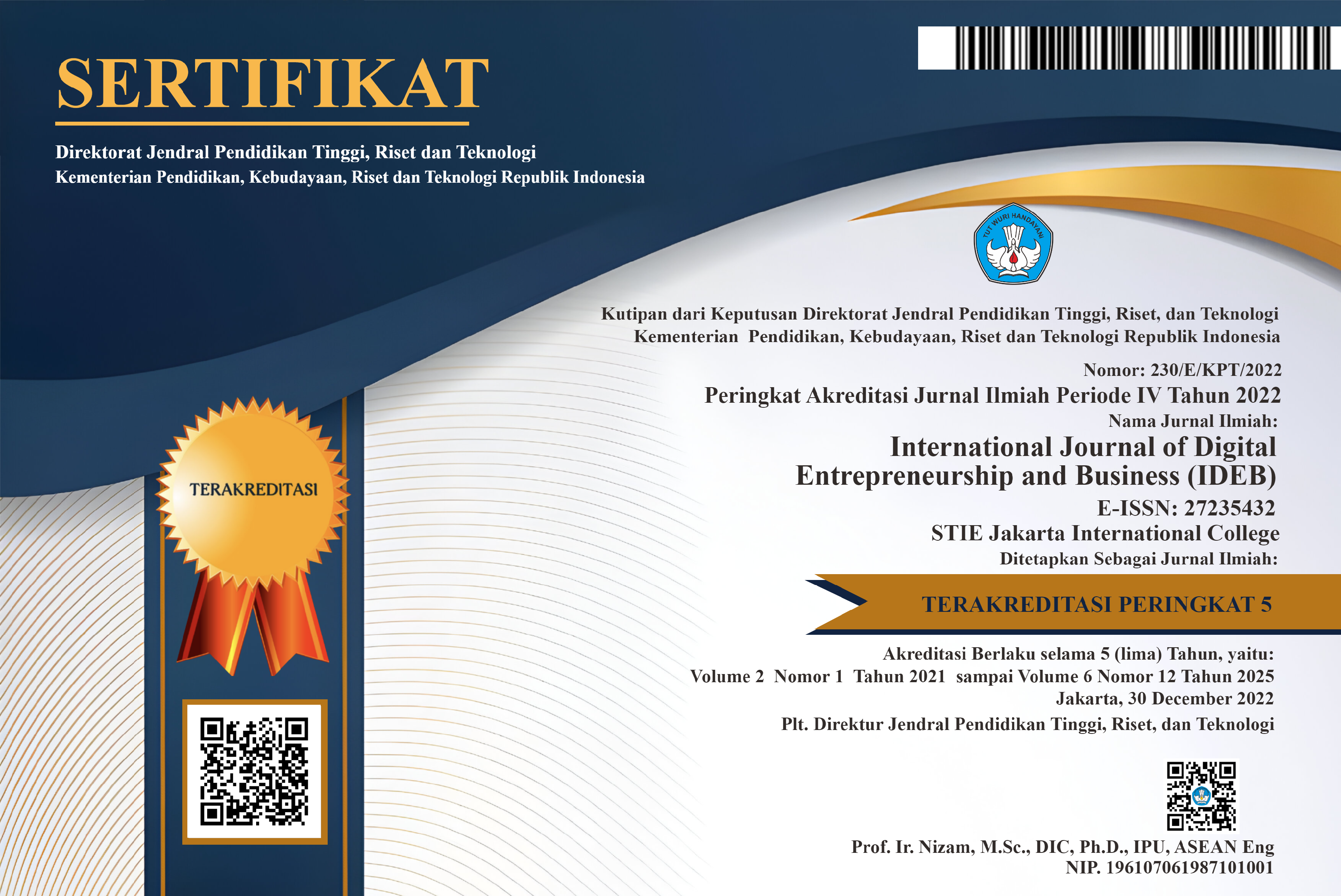The Effect of Indonesian Retail Bonds and Inflation on Conventional Bank Third-Party Funds
DOI:
https://doi.org/10.52238/ideb.v3i1.75Keywords:
Indonesian Retail Bonds, Inflation, Third Party Funds, Conventional Banks, Indonesia Stock ExchangeAbstract
Banks always implement intermediation as a liaison function between funds collected from the public which are then channeled back to the public in form of loans. This enhances service provision to the public in form of transfer, collection, trade financing, bank guarantees, e-banking, ATM services, and others. As financial institutions, banks possess funds, where most are from the public or called Third Party Funds (TPF). TPF is in form of Current Accounts, Savings, and Time Deposits. Currently, a bank is an important institution for the economy of a country, which functions in the issuance of Government Securities (SBN). Risk-free investments such as time deposits certainly affects the TPF collected. This research aims to determine the Issuance of SBN with the Indonesian Retail Bonds (IRB) series on the growth of TPF. Furthermore, it was conducted between February and August 2020 at the Financial Services Authority (OJK). The panel data regression analysis methodology was applied using the EViews 9 program. It was observed that partially, IRB had no effect on TPF, and inflation partially has a negative effect on TPF. Meanwhile, IRB and inflation have a simultaneous effect on TPF.
Downloads
Downloads
Published
How to Cite
Issue
Section
 Abstract viewed = 589 times
Abstract viewed = 589 times












